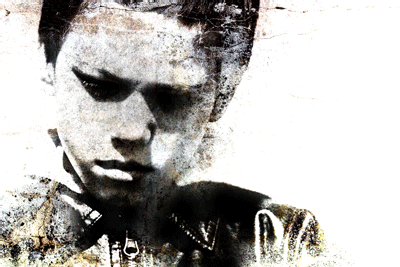Anxiety and depression are the most common mental illnesses in the United States, affecting over 50 million people a year, and leading to moderate or severe impairment in daily living. Risk factors for both anxiety and depression include family history of any type of mental illness, exposure to severe trauma as a child or adult, poverty, high stress, low social supports and drug or alcohol abuse— all of which are unfortunately far too common across Baltimore City.
Women are twice as likely to suffer from anxiety and/or depression— conditions, which often present together. There is also a growing incidence of teenage depression and women in their reproductive years are at further risk. Seven of every 10 single black mothers suffer from depression and one of every five pregnant women suffer with depression or anxiety. Yet, only 10 percent of these women receive treatment.
Anxiety can interfere with daily activities by producing feelings of nervousness, restlessness, fear and irritability; depression is a mood disorder that causes a persistent feeling of sadness, isolation, irritability and loss of interest in activities. More than half of individuals struggling with anxiety or depression experience issues with work or school performance and with social/personal relationships. Despite the availability of effective treatment, millions of Americans with anxiety and depression go untreated each year.
The stigma of mental illness remains a major barrier for access to care. The economic impact of depression nationally totals $210 billion annually due to reduced workplace productivity and treatment of worsening co-occurring medical problems including insomnia, migraine headaches and chronic pain. The actual cost of treatment accounts for only 20 percent of the total amount, meaning $168 billion is spent on consequences of untreated or partially treated depression.
On Wednesday, May 23, 2018, the University of Maryland Medical System (UMMS) and University of Maryland, Baltimore (UMB) are bringing together professionals in the field with community members for a discussion around these issues in the third installment of Not All Wounds are Visible: A Community Conversation; this session focuses on depression and anxiety in women and children. The event is free and is being held at the UMB Campus Center, located at 621 West Lombard Street in downtown Baltimore (across from University of Maryland Medical Center). Breakfast will be provided to all attendees and a resource fair with vendors from local mental health and wellness programs and other community resources will be available.
Presenters will highlight topics such as “Depression and Anxiety: A Socio-Cultural Perspective”; “Childbirth, Parenting & Depression”; “Growing Up In Fear – The Impact of Community Violence and Police Interaction” and “Resilience and Recovery.”
Live satellite viewings will also be available at UM St. Joseph Medical Center (Towson); UM Charles Regional Medical Center (LaPlata); UM Capital Region Health (Cheverly & Laurel) and UM Upper Chesapeake Health (Bel Air). For more information or to register for the free “Not All Wounds are Visible” event, visit: https://www.umms.org/community/community-conversations or call 1-800-492-5538.
Depression during pregnancy is not unlike other clinical depression cases— individuals likely have a persistent low mood and decreased interest in pleasurable activities, and is suffering from irritability, sleep and appetite disturbances, poor concentration, isolation and recurrent thoughts of death or suicide. Anxiety can often accompany, or worsen, depression, and is recognized by restlessness, feeling tense, difficulty concentrating, fatigue and fearfulness. For pregnant women, a fear of caring for a newborn along with self-doubt is often present. Depression following delivery (Post-Partum Depression) is most commonly seen one to four weeks after delivery, and often leaves a mother unable to care for herself or her infant, thus leaving both at great risk.
A lack of identifying and treating depression and anxiety during pregnancy can often lead to complications for both mother and child including pre-term labor, low birth weight, lack of bonding and cognitive and behavioral problems in the child that continue into adolescence. The entire family can be impacted by a disengaged mother, who may not only have difficulty caring for herself and baby, and bonding with her baby but also has difficulty caring for the entire family.
The Department of Psychiatry of the University of Maryland Medical Center and School of Medicine has a Women’s Mental Health Program (410-328-6091/ www.umm.edu/womensmentalhealth) that works with women on both the Midtown and University campuses to provide help for those dealing with anxiety and/or depression. The program has access to treatment in OB and GYN clinics, the Family Medicine office, Addiction Treatment Programs and the Midtown Campus
Pediatric office with a goal to screen and identify any woman in need of assistance and to facilitate a comprehensive evaluation, discussion of treatment planning and access to the appropriate providers.
Dr. Jill RachBeisel is Associate Professor of Psychiatry, University of Maryland School of Medicine and Vice Chair for Clinical Affairs for the Department of Psychiatry and the University of Maryland Medical Center.
